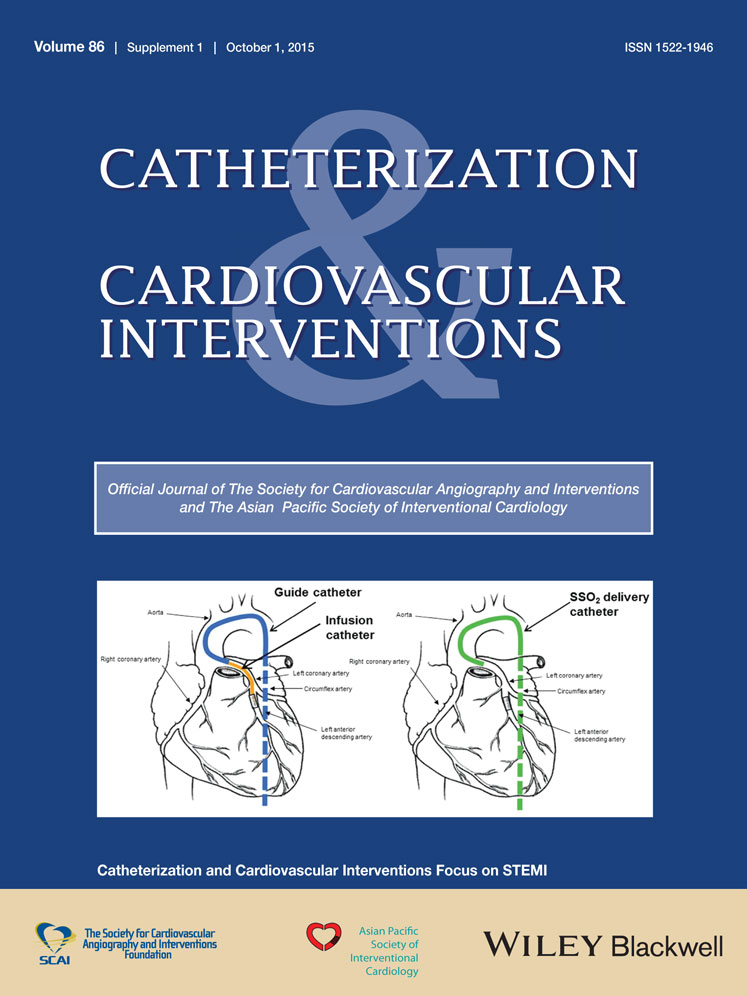Extracorporeal membrane oxygenation support in acute coronary syndromes complicated by cardiogenic shock
Abstract
Background
Acute coronary syndrome (ACS) complicated by shock is associated with high mortality despite the use of percutaneous support devices. Extracorporeal membrane oxygenation (ECMO) offers cardiopulmonary support but its safety and efficacy in the ACS setting is still under investigation.
Methods
We reviewed the clinical characteristics and course of 18 consecutive patients who received femoral veno-arterial ECMO in the cardiac catheterization lab for severe shock due to ACS at our center between 2007 and 2013.
Results
The average age was 59.9 years, 72.2% male. Of the 18 patients, 83% had a ST-segment elevation myocardial infarction, of which 55% had a left main or left anterior descending artery occlusion. Thirteen patients received stents, three were referred for coronary artery bypass grafting alone, and two received balloon angioplasty. All patients received aspirin, a thienopyridine (either clopidogrel or ticagrelor), and heparin. Five patients received a glycoprotein IIb/IIIa inhibitor during the catheterization. The average length of ECMO was 3.2 ± 2.5 days, length of stay was 23.4 days, and 67% survived to discharge. Seventeen of eighteen patients (94%) required at least one blood transfusion and use of blood products was significantly higher in the group receiving glycoprotein IIb/IIIa inhibitors [19 U of packed red blood cells (PRBC) vs. 8.2 U (P = 0.003)].
Conclusions
In patients with severe shock or refractory ventricular arrhythmias due to ACS, VA-ECMO likely offers an alternative form of biventricular support albeit with significant resource utilization and morbidity. A better understanding of how to manage patients with ACS requiring VA-ECMO support including the associated morbidities such as bleeding is necessary. © 2015 Wiley Periodicals, Inc.




